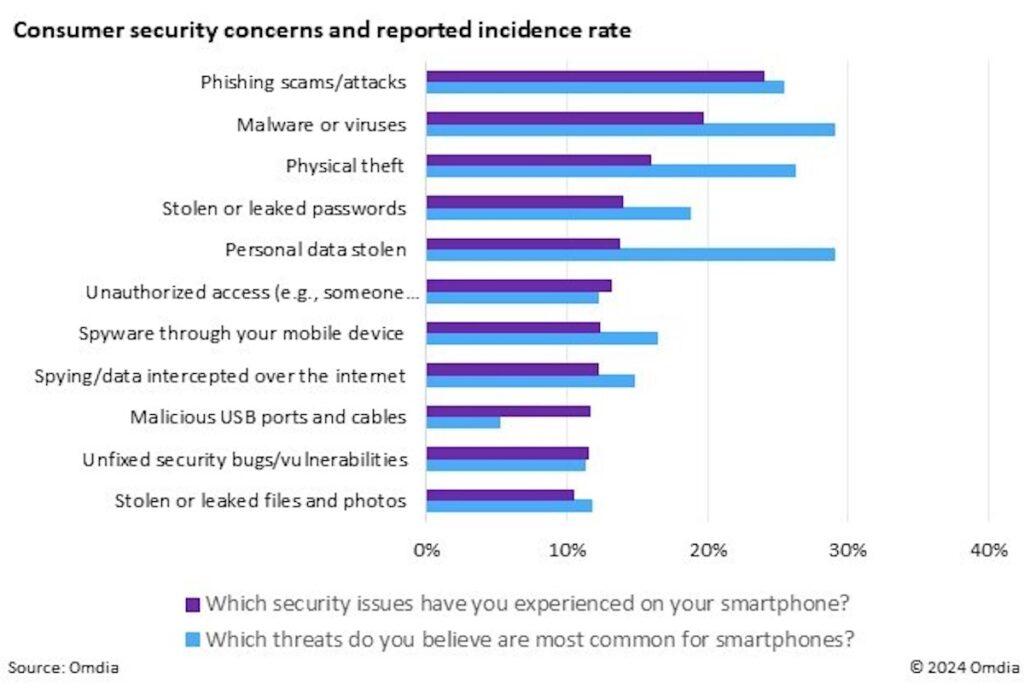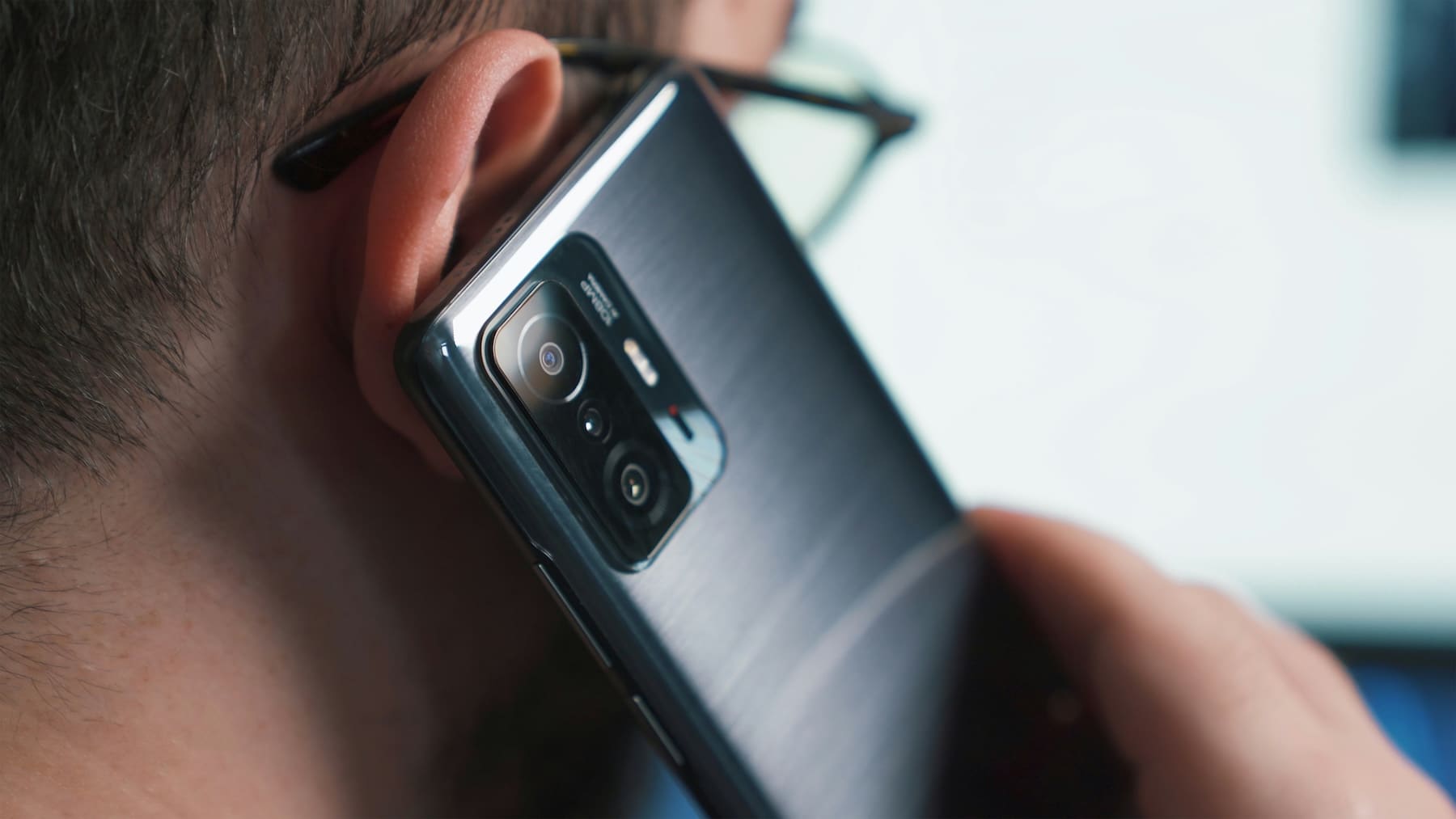A global report indicates that 24% of consumers have fallen victim to phishing scams, highlighting gaps in mobile device protection.
A recent study conducted by Omdia revealed that phishing attacks are the largest security concern for smartphone users, impacting 24% of respondents. This type of attack involves fraudulent messages, emails, or calls designed to deceive users and obtain sensitive personal information. Despite advancements in security, the findings indicate that cybercriminals continue to exploit unsuspecting consumers.
Global Survey Results
The survey, conducted in October 2024 as part of the fourth Omdia Mobile Device Security Scorecard, gathered data from 1,572 consumers across the Americas, Asia, and Europe. Following phishing, the main threats reported include:
- Malware and viruses.
- Physical theft, such as robbery or assault.
The report also evaluated the performance of high-end smartphones like the Google Pixel 9 Pro, Samsung Galaxy S24, and iPhone 16 Pro, along with Android devices from brands like OnePlus, Xiaomi, and Honor.

Deficiencies in Phishing Protection
Despite the increasing sophistication of devices, none of the analyzed models managed to intercept all phishing messages sent via emails, calls, or text messages. However, some brands demonstrated advanced capabilities:
- Android, on devices like those from Google, Samsung, and Xiaomi, effectively identified suspicious calls before users answered.
- Apple, on the other hand, did not offer protection against such calls on the iPhone 16 Pro.
In the case of emails sent from Gmail, no device detected them as phishing, though some classified them as spam.
Highlighted Protections and Areas for Improvement
Devices equipped with Google Safe Browsing technology blocked malicious links when users attempted to open them, displaying warning screens that required user confirmation to proceed. However, performance varied by browser:
- Samsung Internet blocked most links, including those with advanced custom URLs.
- Xiaomi Mii and OnePlus Internet failed to warn about known malicious links, showing inconsistencies in security within the Android ecosystem.
Impact on Consumer Trust
The report emphasizes that the lack of protection against phishing is negatively affecting user trust. According to Aaron West, senior analyst at Omdia, 73% of respondents reported a decrease in trust toward their smartphone brand and the operating system developer after experiencing a security issue.
Meanwhile, Hollie Hennessy, principal analyst at Omdia, pointed out that while guaranteeing total protection is difficult, manufacturers must provide a more robust basic level of security. This includes expanding protections such as the detection of fraudulent calls and ensuring that all Android devices utilize Google Safe Browsing.
Toward Greater Awareness and Security
The study concludes with a call to action for the tech industry. Hennessy highlighted the importance of combining more advanced security measures with consumer awareness campaigns, helping users prepare and remain vigilant against these threats.
With an increasing reliance on smartphones in daily life, security emerges as a key factor in protecting both data and user trust.

